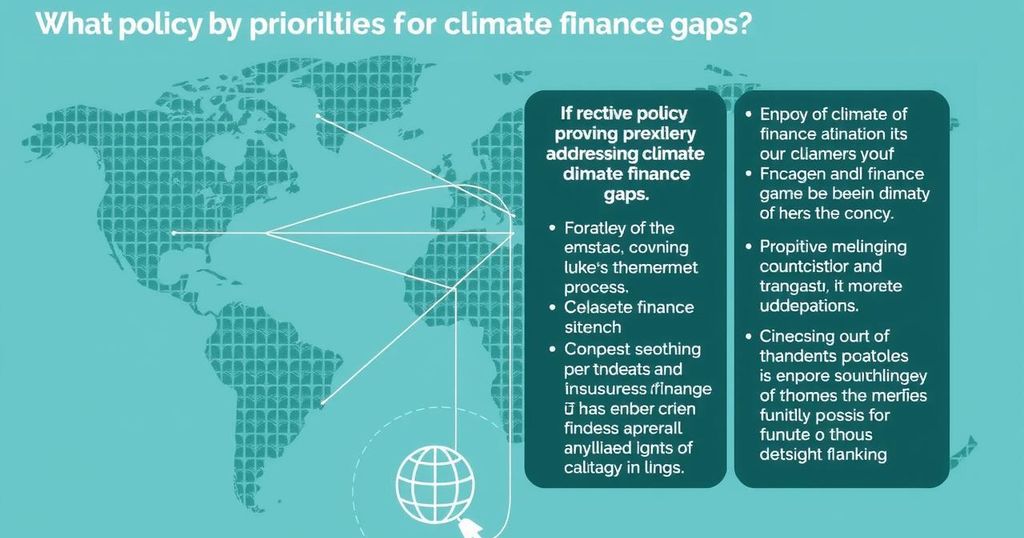Water: A Critical Element in Climate Solutions and Investment Strategies

The World Bank’s “People in a Changing Climate” report, released at COP29 in November 2024, emphasizes the significance of water in addressing climate challenges and highlights the need for substantial investment—estimated at $1.8 trillion—to achieve $7.1 trillion in returns. It outlines the disproportionate impacts of climate change on lower-income nations and calls for urgent reforms and investments in water resource management and cross-sectoral solutions for sustainability.
The World Bank Group’s recent report, “People in a Changing Climate,” released during COP29 in November 2024, underscores the centrality of water in addressing climate change and finance gaps. This report compiles insights from 72 Climate Country and Development Reports (CCDR), emphasizing how the impact of climate change disproportionately affects lower-income countries, leading to significant challenges such as labor productivity losses and economic instability.
Water access is pivotal for agriculture, food security, and economic growth, yet climate change is exacerbating water scarcity through droughts and floods, significantly affecting low-income nations. The report indicates alarming potential economic losses, such as a 14 percent rise in poverty in Malawi due to drought and substantial declines in hydropower capacity in Ghana. Furthermore, rising incidences of waterborne diseases are predicted in Uzbekistan and Zimbabwe due to water resource mismanagement.
To combat these challenges, the CCDRs advocate for targeted investments and regulatory reforms in water resource management to enhance climate resilience. By emphasizing the need for financing—estimated at $1.8 trillion by 2030 for the water sector—the report highlights the potential economic returns of $7.1 trillion. It stresses the importance of public-private partnerships in addressing the existing financial shortfall.
Additionally, the report calls for comprehensive solutions across various sectors, including energy, transportation, and urban development, necessitating a transition towards sustainable infrastructure. Richer nations are urged to lead in decarbonization efforts and share technology. Overall, addressing these finance gaps is crucial for achieving climate adaptation and sustainable development goals globally.
The topic of water as a critical factor in climate solutions is gaining momentum, particularly as climate change continues to intensify its impact on vulnerable populations and ecosystems worldwide. The World Bank Group’s report reflects a synthesis of ongoing research and frameworks that guide nations towards resilient, climate-conscious development strategies. As countries respond to the twin challenges of climate adaptation and mitigation, understanding water’s role within this context is essential for sustainable growth and poverty alleviation.
The World Bank Group’s report lays out a comprehensive call to action, emphasizing that water management is crucial in the fight against climate change. The findings highlight significant economic implications for low-income countries suffering from climate-induced water challenges. Greater investment and cooperative efforts across both public and private sectors are essential to close the financial gaps and facilitate a robust, climate-resilient future. Ultimately, the collective responsibility of global stakeholders is reinforced in striving for sustainable development and equity in climate adaptation efforts.
Original Source: www.downtoearth.org.in






